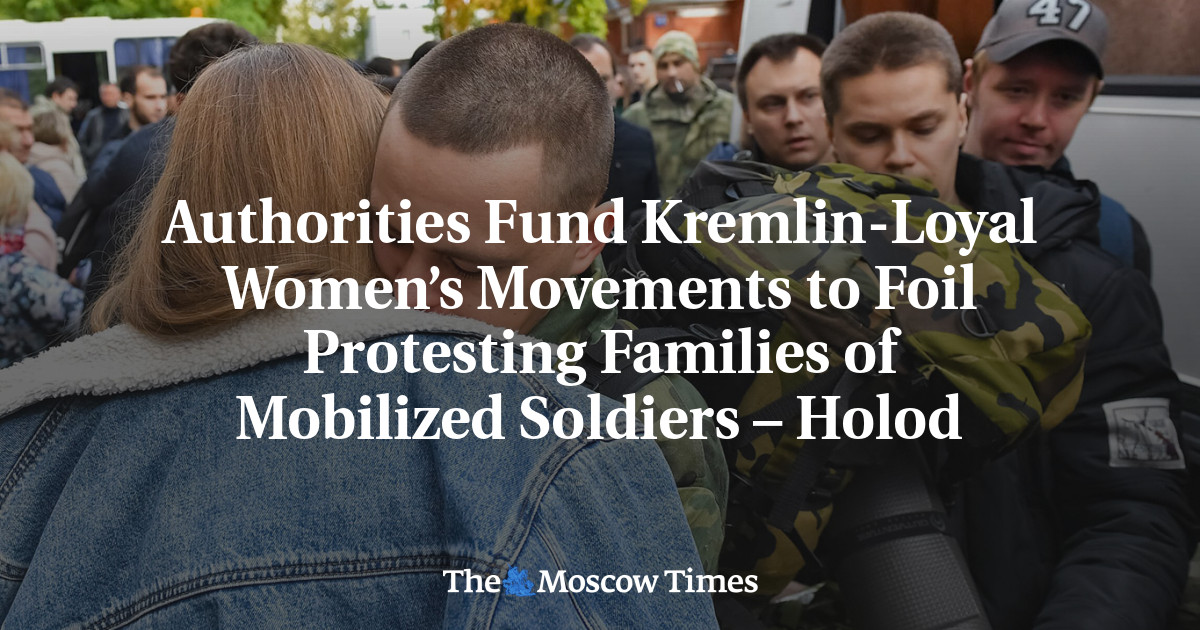
The Kremlin is investing in movements of wives and mothers who support the war in Ukraine and promote traditional values to counter the growing influence of protesting relatives of soldiers, according to a report by the independent news outlet Holod published Tuesday.
Mobilized soldiers’ relatives, most notably the Put’ Domoi (Way Home) group, are demanding the return of their sons and husbands from the frontlines, where they are being kept for longer than promised. Their protests have become one of the Kremlin’s biggest domestic political challenges in recent months.
The Katyusha movement — a likely reference to the popular Soviet war song — has emerged as the most prominent opponent of Put’ Domoi, Holod reported.
Katyusha’s members, who are vocal supporters of President Vladimir Putin, produce pro-war, pro-government content that is regularly featured by pro-government news agencies and TV channels.
The movement consists of at least 15 publicly visible members who hail from Russia and the Moscow-occupied Ukrainian territories, according to Holod.
Most of these women claim to be relatives of Russian servicemen currently fighting in Ukraine, though Holod’s journalists were unable to find proof of these connections.
Katyusha claims that its funding comes from public donations. Holod’s investigation identified the government-linked Internet Development Institute (IRI) as the chief sponsor of the movement’s pro-war short films.
Another movement created in juxtaposition to Put’ Domoi is Zhenskoe Dvizhenie (Women’s Movement), which according to Holod is sponsored by the ruling United Russia party.
Zhenskoe Dvizhenie is headed by Nataliya Poluyanova, a State Duma deputy from the Ukraine-bordering Belgorod region, and Federation Council senators Galina Karelova and Darya Lantratova, who represent the Voronezh region and the annexed Luhansk region of Ukraine respectively.
United Russia’s movement has focused its efforts in Russia’s regions, away from major urban centers such as Moscow and St. Petersburg.
Zhenskoe Dvizhenie’s members organize collection drives for humanitarian and military aid in their respective regions, weave camouflage nets and oversee public pro-war activities.
Earlier this month, the group sponsored a war-themed fashion show in Khanty-Mansiysk, the capital of the Khanty-Mansi autonomous region (Yugra), where wives, mothers and children of soldiers featured as models.
“There are different ways one can wait for her husband. Some sink into a state of melancholy and depression, while others strive to spend every hour usefully to help bring victory closer from the rear,” Zhenskoe Dvizhenie said in a social media post dedicated to one of their members which was cited by Holod.